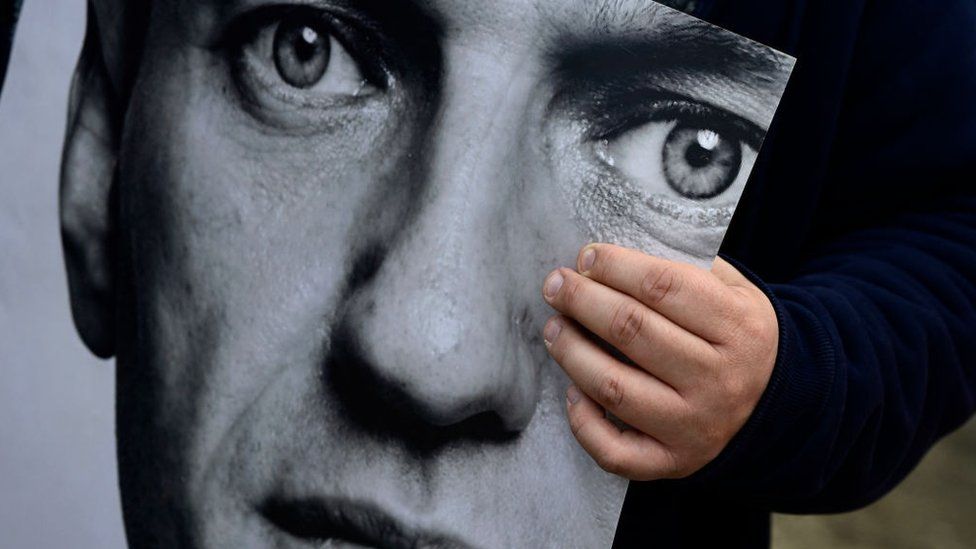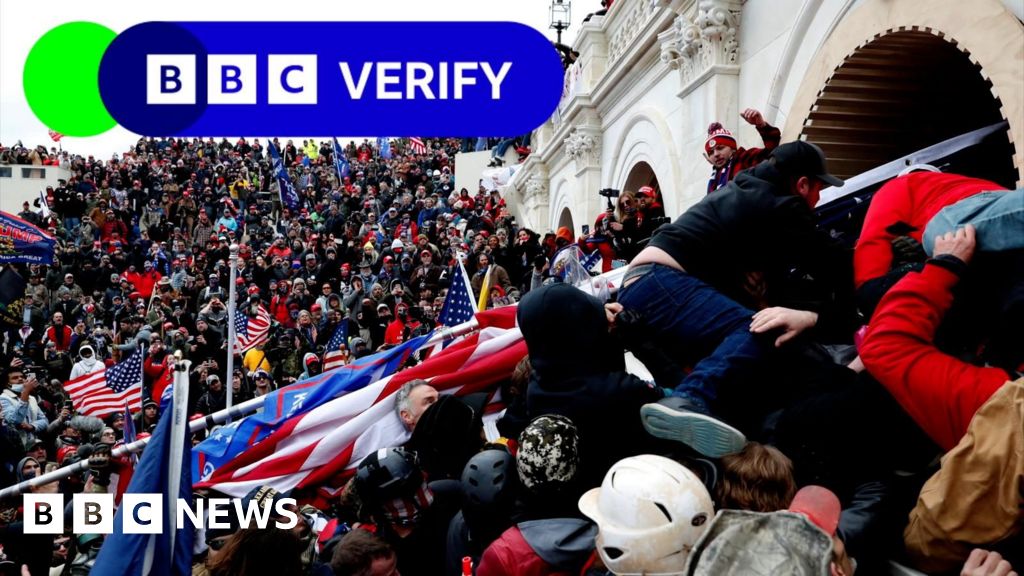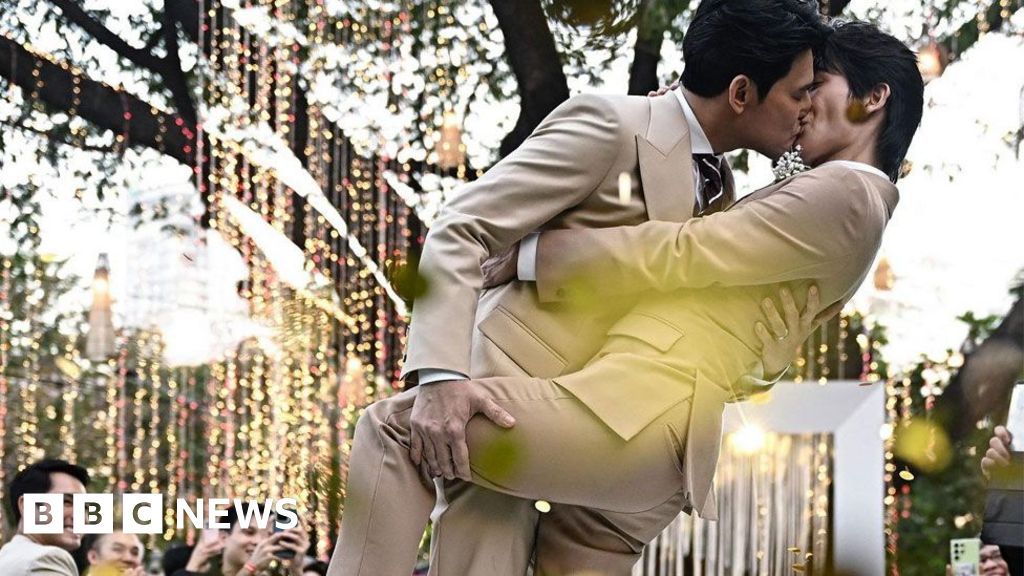ARTICLE AD BOX
 Image source, Getty Images
Image source, Getty Images
A supporter holds a picture of Navalny in Berlin after news of his death
By Sarah Rainsford
BBC Eastern Europe correspondent
There was a time when journalists used to ask Alexei Navalny why he was still free. The next question was often whether he feared for his life.
When Navalny was poisoned with a novichok nerve agent in August 2020, they stopped asking.
Now Vladimir Putin's most dangerous political opponent has been pronounced dead by the Russian prison service.
For a long time, the Kremlin appeared to think he was too influential to touch. He had supporters across the country and a political network like that of no other rival to Putin.
His films exposing high-level corruption were viewed and shared by millions and, every so often, he brought supporters out onto the streets in mass protest.
The Kremlin loathed that, of course. Putin refused even to utter Navalny's name.
But the calculation seemed to be that jailing him might spark angry reaction that could spiral into something risky for Putin's hold on power.
Navalny got short spells in police custody. There were criminal charges, but no prison time.
Then in August 2020 the Russian opposition activist collapsed on a flight from Siberia. If the pilot hadn't made an emergency landing, Navalny would have died.
Tests in Germany confirmed it was an attempted assassination, using a military-grade nerve agent developed in Soviet times.
The attack happened just as giant protests were gathering force in neighbouring Belarus against the authoritarian rule of Putin's great ally, Alexander Lukashenko. They were nervous times for the Kremlin.
When Navalny recovered, he knew he would never be safe again in Russia.
The state prison service had warned him he'd go to jail if he returned. But the life of a political émigré, increasingly out of touch and irrelevant, was not for him.
Image source, Getty Images
Image caption,Navalny had the power to bring people out onto the street
In Moscow, I reported from many of Navalny's street protests, his court battles and his attempts to run for political office.
He wasn't universally liked - there was always rivalry among opposition ranks in Russia.
But he was a powerful speaker - a master of social media - and he always struck me as extremely driven, energetic and passionate about his main cause.
That was removing Vladimir Putin and a coterie of politicians that he denounced, loudly and repeatedly, as "crooks and thieves".
I wasn't surprised when he returned to Moscow in January 2021, despite everything. And Navalny wasn't surprised when he was arrested on arrival.
First in court, and then from prison, he continued to speak out.
He would appear via video link for hearings in the multiple criminal cases against him. The charges kept piling up, all excuses to keep a political opponent locked up.
He looked gaunt, his head shaven and his prison uniform loose. But Navalny would sound as upbeat and defiant as ever, even speaking from behind bars.
Image source, Getty Images
Image caption,Navalny waves from behind a prison barrier in one of the last videos he was seen in
On his last appearance, the day before he is said to have died, he was still joking.
His persistent cheerfulness was itself an act of resistance, a refusal to be broken.
Navalny never abandoned his belief in what his team called "the beautiful Russia of the future": the end of Putin's long and repressive rule and the prospect of political change in his country.
But after the activist's arrest, Putin launched his war on Ukraine, Navalny's political organisation was banned as "extremist" and its members arrested.
Other well-known critics of Putin have been imprisoned or they've fled the country for safety.
For them, and all those who imagined a different Russia, the news of Navalny's death means the outlook has never looked so bleak.
For me, the most striking realisation is that such news is no longer even a shock.

 11 months ago
18
11 months ago
18








 English (US) ·
English (US) ·